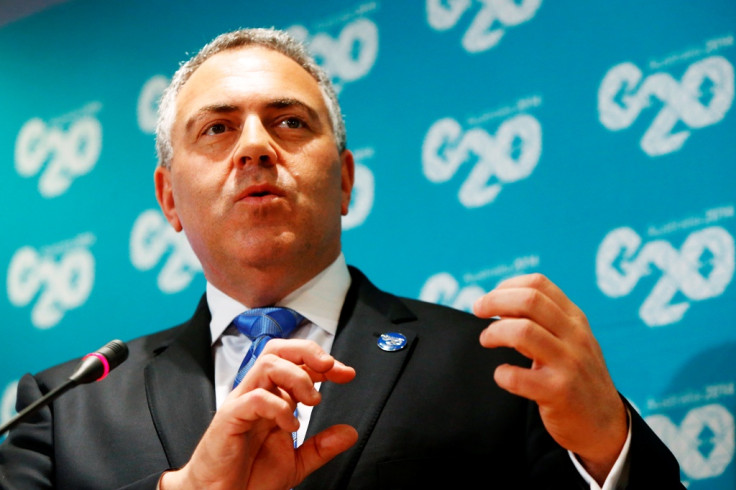Australia's planned tax revamp could cut corporate tax and hike GST

Australian treasurer Joe Hockey has hinted at tax changes that could compel tech giants like Apple, Google or China's Alibaba Group Holding pay more on transactions that take place in Australia.
Australia's tax system is up for review following the release of a federal government report that suggests the continent is heavily dependent on corporate and income taxes and not enough on consumption taxes like the GST.
The long-awaited 200-page Re:Think report does not outline any final changes but political and market analysts believe its focus on a few key areas heralds approaching changes, Reuters reported.
The report
Up for discussion are a cut to Australia's corporate tax rate, a broadening of the goods and services that are included in the GST and a new levy on bank deposits.
The document found that Sydney raises some 70% of its revenue from corporate and personal income tax, a level that Hockey said was unsustainable.
That, the white paper warned, could inhibit hard work and investment, potentially hurting Australia's economic growth.
Australia's current GST rate, at 10%, is the lowest in the developed world.
The nation's 30% company tax rate is higher than many of its competitors', with a third of all company tax being paid by just 12 companies.
Hockey also said that the existing bank deposit levy of 0.5%, on deposits up to A$250,000, was introduced by the previous labour government and suggested it was not enough.
Submissions and suggestions on the discussion paper can be made at bettertax.gov.au until 1 June 2015.
...The Government must build a tax system that delivers taxes that are lower, simpler and fairer...
Hockey said in a 30 March statement: "...The rise of the digital economy and globalisation presents significant challenges for the effectiveness of the tax system.
"Capital is more mobile and we need a competitive corporate tax regime to encourage investment. Multinational corporations operate across many jurisdictions and that means it can be difficult to determine where tax should be paid.
"The Intergenerational Report highlights the need for a tax system that can support a growing and ageing population while there is a decline in the number of traditional working age Australians to fund services.
"Australia can't risk falling behind. Many of Australia's international competitors are changing their tax systems to make them more competitive.
"The Government must build a tax system that delivers taxes that are lower, simpler and fairer.
"The community's responses will inform the Government's tax options Green Paper, due to be released in the second half of 2015. The Government will seek further feedback on those options before putting forward policy proposals for consideration by the Australian people in 2016," he added.
© Copyright IBTimes 2025. All rights reserved.






















